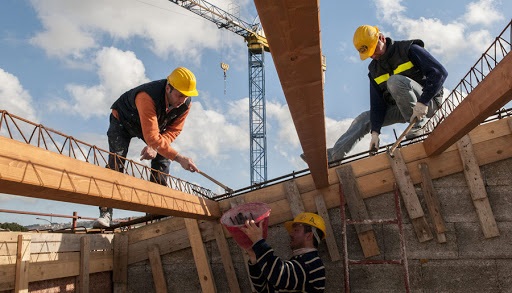
When an individual or an association of individuals build their own house (or houses), this can be considered a self build.
Self build is a way to own your home as in opposite to buying it from a commercial developer, which is the majority of the cases in the UK.
Embarking on a journey to self build your home can give great satisfaction and you can claim unexpected benefits at the end of the process.
What experience do I need to do a self build?
If you want to be a self builder, you don’t need to do the works yourself or be an expert of construction.
While many self builders want to be somehow involved in the physical process, often in the finishing stages of painting and floor-fitting (helps to save on the cost of workmanship), you can hire people to do the works for you.
Self-build is a project strategy where a private individual, not a company or a public entity, is developing their own house and taking project decisions, usually with the support of an architect or consultant, or directly working with one or more contractors.
Self build projects still require to comply with planning and building regulations, so better have an expert at your side for advice. Time is money.
Why are there so little self build projects?
As they say: no pain, no gain.
You will need to find a plot of land, present a project for approval to the planning authority, have sufficient financial resources – savings, a mortgage, or equity in your existing home – to support the entire operation, arrange the temporary accommodation where you and your family will stay while the works go ahead, ensure access to services is provided to the site – unless you want to be living off-grid, but the construction works may require water and power, somehow.
Self build is stressful, definitely more that browsing real estate websites.
What are the benefits of self building?
Some of the best reasons to undertake a self build projects are extremely practical, and include:
- have a very bespoke house, tailored for your family and lifestyle
- save up to 30% on the market value
- future-proof your home, include all the technology and features, or allow for them to be installed in the future.
- have easily 25% profit on the investment (or more)
- claim back VAT on almost all building materials
- pay reduced VAT rate to contractors
Additional VAT benefits could apply if you are converting an existing building to live in it.
Tempting, isn’t it?
I want to a kit home. Is it self build even if it is a prefab?
Off site construction is an excellent approach if the budget is not too stretched or if the site is located in a difficult context – limited access, adverse weather.
Yet it provides very high-quality results being the components factory made and inspected carefully during the process.
Alternatively, we are specialised in low tech and use of natural materials.
Either way, it could still be considered self build with all the associated benefits.
Here you can find further information on self building:
– Homebuilding & Renovating
– Gov.UK
– Self Build Portal
If you are thinking of self building, you should already contact us to talk about your project.
We currently offer a free consultation service and we are pretty sure you will like it.
It’s as simple as clicking on get in touch and we will help you take the right steps.


